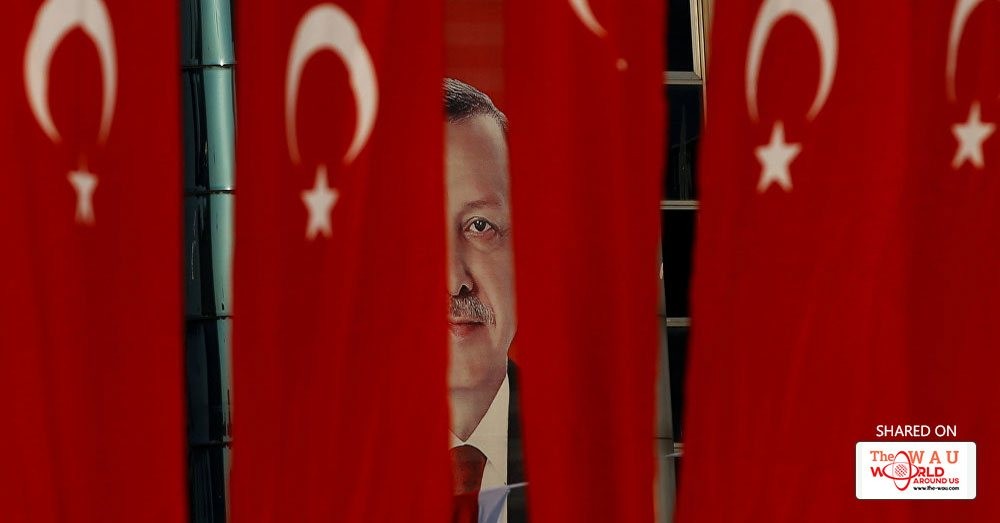The rift between Ankara and Berlin has further deepened as Turkish President Erdogan called on ethnic Turks living in Germany not to support the two ruling parties in the upcoming German election.
"I am telling all my citizens in Germany to not ever support … the CDU [Christian Democratic Union], the SPD [Social Democratic Party] or the Greens. All of them are the enemies of Turkey," Erdogan said Friday, adding that only the parties that do not engage in "enmity against Turkey" should be backed by the Turks.
Radio Sputnik discussed the situation with Dr. Hüseyin Bağci, professor and chair of the department of international relations at Middle East Technical University and deputy director at the Foreign Policy Institute in Ankara.
A month before the German election, such a "harsh and strong" statement by Erdogan risks resulting in a "greater economic, social and political crisis between Turkey and Germany," according to Bağci.
"For the first time, a Turkish president is intervening in the domestic affairs of a foreign country. The Turkish presidents in the past never stated anything like this. … The question is how Germany will react – accept the criticism or show some reaction," the Turkish expert said.
Later that day, Berlin responded to the Turkish president with a statement by German Foreign Minister Sigmar Gabriel. He accused Erdogan of trying to "drive a wedge" between people in Germany and urged Ankara to resist what he described as a "blatant interference" in the German election campaign.
Bağci also suggested that Berlin would deliver a comprehensive response to Ankara later, most probable after the election scheduled for September 24.
"The new German government will definitely have a new policy towards Turkey. … But in terms of bilateral relations, tensions will continue to increase between the two countries. And there is no one who can extinguish the fire that is growing bigger in their bilateral relations," he pointed out.
Commenting on the consequences of Erdogan’s statement, the expert said that the majority of Turks living in Germany are likely to follow the call of the Turkish president, but this will not significantly affect the bigger picture of German’s domestic policy, including the results of the vote.
Bağci also said that Erdogan’s remarks are likely to have negative consequences for Turkey, especially in terms of Turkey’s relations with the European Union. Germany is the leader of the multinational bloc and its voice plays a very significant role in defining Brussels’ policy towards Ankara.
"This bilateral conflict may turn into a conflict in Turkish-European relations. But this will depend on the reaction of the German government. But once again, there has never been such a serious crisis between Turkey and Germany and between Turkey and Europe. In political terms, it may not be good for Erdogan. Turkey may win domestically, but it will certainly lose internationally," the expert concluded.
On Saturday, however, Erdogan continued his criticism of the German government, in particular lashing out at Foreign Minister Gabriel over his remark.
"He knows no limits! Who are you to talk to the president of Turkey? Know your limits. He is trying to teach us a lesson. … How long have you been in politics? How old are you?" Erdogan said addressing his supporters at a rally.
The relations between Ankara and Berlin have been deteriorating for some time over a number of issues, with the most recent blows hitting in July, after Foreign Minister Gabriel promised to review Berlin's policy toward Turkey due to the detention of six human rights activists in Ankara on July 5, including Amnesty International's Turkey director Idil Eser and German human rights activist Peter Steudtner, under the suspicion of assisting a terrorist group.
The situation deteriorated after Berlin banned Turkish officials from holding pre-referendum rallies on German soil later in the year. Erdogan then compared the authorities in Berlin with the Nazis.
In May, Ankara canceled a German delegation's visit to the Incirlik military airfield in Turkey, where German military personnel and jets were stationed, a day before the visit was scheduled to begin. In early June, Berlin responded to Ankara's move by announcing the withdrawal of its troops from the base, which started in July.
Share This Post















